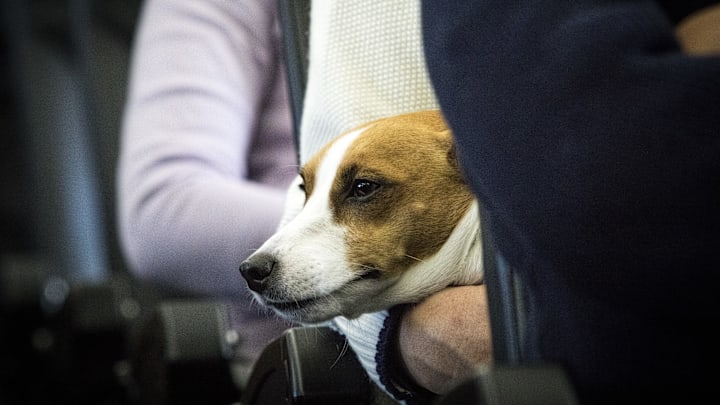After living through the COVID-19 pandemic, seeing a headline that includes the words “CDC announces strict rules for traveling” may potentially cause shock for those who love getting away. However, this headline targets those who want to travel to the United States with a dog, which is especially important for those returning to the country with their four-legged friend.
On Wednesday, May 8 the Center for Disease Control and Prevention announced new restrictions for dogs traveling into the United States. The new rules go into effect on August 1 and effectively ban all dogs that are younger than six months old. For those families with dogs that are older than six months, they must show proof that the dog has not been in countries that are deemed “high risk.” Those families that cannot provide that proof must quarantine their animals. These dogs must also be microchipped.
The CDC announced the rule as a step to “protect the health and safety of people and animals by making sure any dog arriving in the United States is healthy and doesn’t present a risk to our communities,” as stated in a press release.
The list of high-risk countries includes 131 areas that were deemed threats for rabies as of August 2023. The United States has deemed rabies eliminated in this country since 2007. Along with these two issues, the statement points out challenges with fraudulent documentation for families attempting to transport dogs into the United States, and the animals being kept in unsafe conditions.
The Humane Society Legislative Fund responded in its own press release on Thursday, highlighting why these mandates will be a challenge to some.
“The CDC’s job is to maintain public health, but these new requirements may needlessly delay Americans – including government personnel and military families – from returning to the United States with their pets, creating great anguish and breaking up families in the process,” said Tracie Letterman, vice president of federal affairs at Humane Society Legislative Fund in a statement.
These mandates will also impact airline travel, as those carriers will have to comply with the standards, putting some in the position to even deny entry for the animal entirely.
